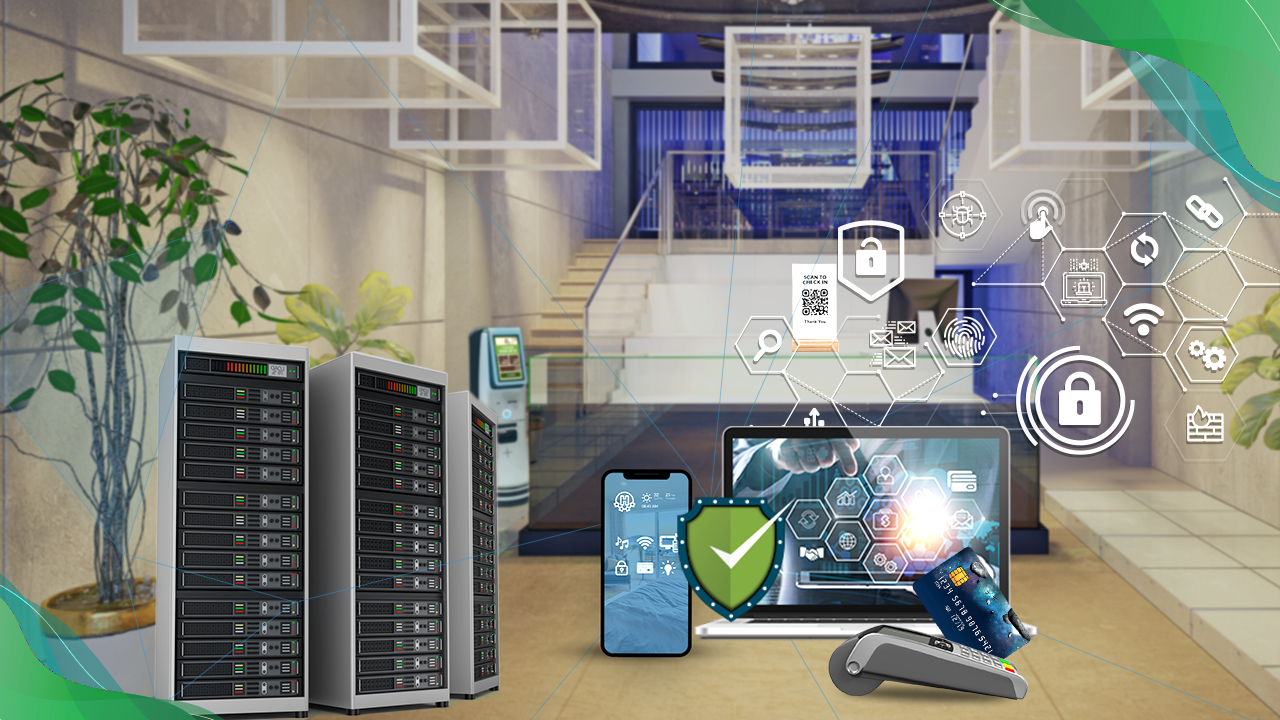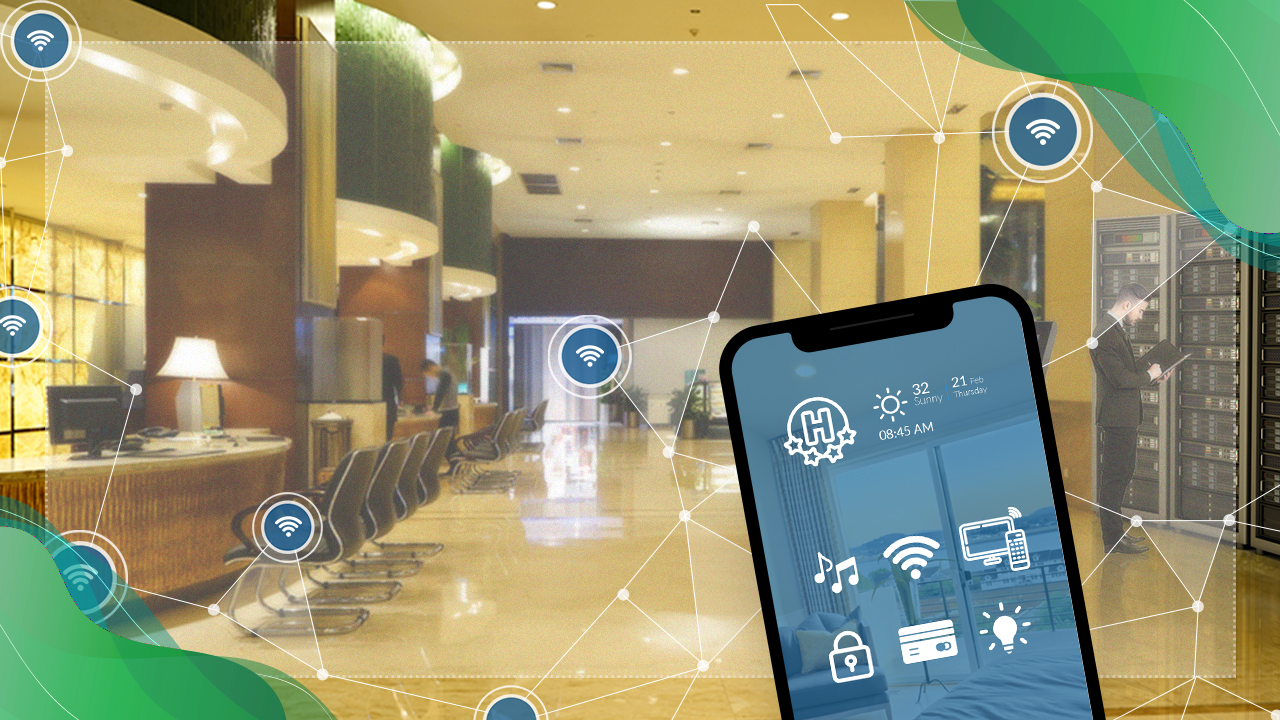Introduction
As hotels increasingly adopt digital technologies to enhance guest experiences and streamline operations, the risk of cyberattacks continues to grow. Cybersecurity threats targeting the hospitality industry range from data breaches to ransomware attacks, putting sensitive guest data and hotel operations at risk. To combat these evolving threats, hotels are turning to Artificial Intelligence (AI) and Machine Learning (ML) as powerful tools to strengthen their cybersecurity defenses.
AI and ML technologies can help hotels identify and respond to threats in real time, analyze vast amounts of data for suspicious activity, and automate security processes to reduce human error. This blog will explain how AI and ML can enhance cybersecurity in hotels and why these technologies are essential for staying ahead of cybercriminals.
How AI and Machine Learning Detect Cyber Threats in Real Time
One of the biggest advantages of using AI and ML in hotel cybersecurity is the ability to detect threats in real time. Traditional cybersecurity systems often rely on rule-based detection methods, where specific patterns or signatures are identified as malicious. However, cybercriminals are constantly developing new attack techniques, and rule-based systems may not be able to detect these novel threats.
AI-powered systems, on the other hand, can analyze massive amounts of data in real time and identify patterns that indicate suspicious behavior. Machine learning algorithms can learn from this data and recognize new and unknown threats that do not fit established patterns. For example, if a guest’s account is accessed from an unusual location or there is an abnormal spike in network traffic, AI can flag these anomalies as potential security breaches.
AI can also automate the monitoring of network activities 24/7, ensuring that any unusual or malicious behavior is detected immediately. This level of real-time threat detection enables hotels to respond to cybersecurity incidents more quickly, reducing the chances of a data breach or system compromise.
AI and ML in Predictive Analytics for Cybersecurity
Another key benefit of AI and ML is their predictive capabilities. These technologies can analyze historical data on cyberattacks and use that information to predict future threats. By learning from previous security incidents, machine learning algorithms can identify patterns of behavior that indicate a potential attack before it happens.
For example, AI can analyze logs from hotel management systems, payment gateways, and guest Wi-Fi networks to identify recurring patterns in data breaches or unauthorized access attempts. Based on this analysis, AI systems can predict when and where future attacks may occur, allowing hotels to proactively address vulnerabilities before they are exploited.
Predictive analytics also helps cybersecurity teams focus on the most critical areas, ensuring that resources are allocated efficiently. Instead of being overwhelmed by a constant influx of alerts, AI can prioritize threats based on their likelihood and potential impact, helping hotel IT teams respond to the most urgent issues.
Automating Hotel Cybersecurity with AI and Machine Learning
Manual cybersecurity processes can be time-consuming and prone to human error, especially in complex hotel environments where data is flowing from multiple sources, such as guest reservations, payment systems, and operational systems. AI and ML can automate many of these processes, making hotel cybersecurity more efficient and reliable.
For example, AI can automatically monitor and filter network traffic, blocking known malicious IP addresses or phishing attempts before they reach hotel employees or guests. AI-powered systems can also scan emails and attachments for malware, preventing harmful content from infiltrating hotel networks.
Additionally, machine learning algorithms can automate threat detection and response by instantly isolating infected systems or quarantining suspicious files without human intervention. This speeds up the incident response process and reduces the risk of further spread across the network. Automated responses can also ensure compliance with data protection regulations, as AI can detect and report breaches faster than manual processes.
AI in Enhancing Data Privacy and Guest Data Protection
Protecting guest data is one of the top priorities for hotels, as they handle sensitive information such as payment details, personal identification, and booking history. AI and machine learning can enhance data privacy by ensuring that sensitive guest information is only accessible to authorized personnel and systems.
AI can monitor data access and usage patterns to detect unauthorized attempts to access guest data, both by internal staff and external actors. For instance, if an employee tries to access a guest’s credit card information without the appropriate clearance, AI can immediately flag the action and restrict access. This reduces the risk of insider threats and prevents sensitive data from being exposed.
Machine learning algorithms can also help hotels comply with data protection regulations, such as the General Data Protection Regulation (GDPR) or California Consumer Privacy Act (CCPA). These regulations require businesses to protect personal data and notify authorities in the event of a breach. AI-powered systems can identify potential data privacy violations, generate compliance reports, and ensure that guest data is handled securely.
Addressing Phishing and Social Engineering Attacks with AI
Phishing and social engineering attacks are common threats to hotels, where cybercriminals attempt to trick employees into revealing sensitive information or clicking on malicious links. AI can significantly reduce the success of these attacks by automatically detecting phishing emails and fraudulent messages.
AI systems can analyze the content of incoming emails, identifying suspicious patterns or language that may indicate phishing attempts. For instance, if an email claims to be from a hotel manager but contains unusual grammar, requests for sensitive information, or links to unfamiliar websites, AI can flag it as a phishing attack. This allows hotels to prevent such emails from reaching staff and guests.
Machine learning algorithms can also train AI systems to improve their accuracy over time, learning from new phishing techniques and evolving threats. By continuously updating its knowledge base, AI can stay ahead of cybercriminals who attempt to use social engineering tactics.
Conclusion
AI and machine learning are revolutionizing the way hotels approach cybersecurity. These technologies provide real-time threat detection, predictive analytics, and automation, all of which enhance the ability to prevent, detect, and respond to cyberattacks. As cyber threats become more sophisticated, hotels must adopt AI-driven solutions to safeguard guest data and protect their operations from malicious actors.
By leveraging AI and machine learning, hospitality professionals can strengthen their cybersecurity defenses and create a safer environment for guests and employees alike. Investing in these technologies is no longer optional—it is a critical step for hotels looking to secure their future in an increasingly digital world.




